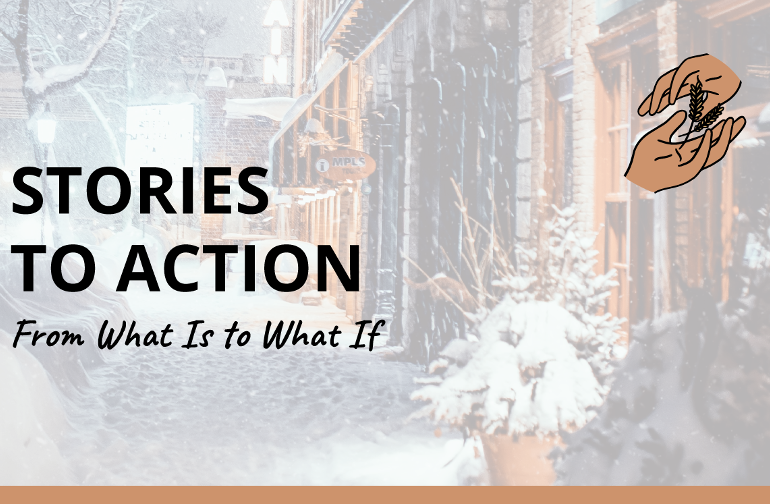In 2011, Edy’s Ice Cream gifted the City of Columbia with an orchard. Unfortunately, due to confusion in the chain of command and with no one department assuming primary responsibility, the young trees were alternately over-watered or neglected. The result? A majority of the trees died, and the orchard became a weedy wasteland.
In 2013, our group, Columbia Resilience, wanted to start a food project. Synchronicity kicked in with the availability of an actual orchard in need of rescue. Once we voted to transform the orchard into a community food forest, we couldn’t locate any department or official to give us definitive approval to take over the project. But acting on the adage that it’s easier to get forgiveness than permission, we forged ahead.
Two of our members created a permaculture design and we began work.
Click on the video to learn more about the Rosewood Permaculture Food Forest. Video courtesy of Permaculture Homestead and its creator Tory Morton.
Over the course of several years, we received grants from the county conservation commission and from a local non-profit. This money allowed us to replace dead trees, add shrubs, build an herb spiral, and install an information kiosk and signage. We incorporated annual vegetables for visitors to pick.
When our first lead gardener died unexpectedly, contributions made in his memory were used to purchase a watering system. Both the kiosk and the watering system were installed by students at the University of South Carolina, through the Office of Environmental Health and Safety.
Even before the pandemic, the orchard was well-used, but during 2020 its status as a safe outdoor community meeting place has resulted in it becoming a neighborhood landmark. People feel comfortable hosting pumpkin carving events and birthday gatherings there.
A large mulberry tree, one of the survivors of the original planting, anchors the main gathering space. Children climb on it and play beneath its branches. A Columbia Resilience member has refurbished comfortable seating for watchful moms. Another member built and donated a Little Free Library. We put out a call for more children’s books, especially in Spanish since kids at soccer practice often wander over to check out the book supply.
A volunteer and her husband created a meditation/discussion circle with sawn-off tree trunks spaced a safe six feet apart.
Another volunteer has created approximately 140 I-Naturalist entries relating to the flora and fauna he has observed at the orchard.
Columbia Resilience now has established ties with the neighborhood and members share responsibility for the maintenance and development of new features. We coordinate 12 volunteer hours per month per volunteer. Our orchard working group collaborates with a department at the University of South Carolina, which regularly seeks hands-on projects for its students. The current lead gardeners hold Saturday workdays, give tours, and offer plant samples.
The Orchard, Figs, The Little Free Library
Positive Impacts
A few people have remarked that the orchard isn’t really a food project because the amount of fruit and vegetables it produces wouldn’t feed very many people for very long. That may be true, but a community’s resilience is also a function of strong relationships. The orchard has created bonds where there were none before. Our volunteer network, our relationship with the university, the friendships of people who first met under the mulberry tree — these connections may be vital for our future.
The orchard also fosters creativity and delight among the volunteers as they work together, traits that create the social capital for deep cooperation, as David Fleming notes in his book Surviving the Future.
Challenges the Project Faced
- It cost money to rebuild the orchard. We secured financial support primarily through a succession of grants and some private donations.
- We needed technical assistance, which we secured through collaboration with the University of South Carolina Office of Environmental Health and Safety, as well as group members with permaculture training and handyman skills.
- We needed volunteers, which we secured over time by engaging with visitors and making the orchard a fun and attractive place where people feel drawn to participate and eventually take on responsibility.
Our first lead gardener’s sudden death was a heavy challenge. All we could do was to look to those who had worked closely with him with the hope they could carry on … and they did, amazingly well.
Another challenge has been that of sharing with the city our vision for how “public land” should look and be maintained. At the moment we have a compromise with city maintenance crews that they will mow the edges of the orchard boundary and we will maintain the orchard itself, and that it is not expected to look neat and tidy like an ordinary park.
Advice for Replicating This Project
- Keep at it. It took a few years for us to build relationships with the neighborhood so that they were willing to work first with us and then on their own.
- Take advantage of all available skills within your group.
- Exploit all your contacts to find help in unexpected places. The director of a local non-profit was able to put us in touch with university personnel who worked on our infrastructure projects.
- Make it fun. For example, several volunteers had a work party where they created hand-made pottery tags for some of the plantings.
- Make it beautiful and meaningful. Our lead gardeners are passionate about encouraging pollinators with many wonderful flowering plants, bee hotels, and natural areas, and they have provided signage to explain everything.
- Expect deep creativity to emerge. When our first lead gardener died, a beautiful cairn to him was spontaneously created within days, and it continues to be meaningful to all who knew him.
- Accept that you can’t control everything. Symbiotic relationship will grow up between a place and the people who love it. The creative expressions of that relationship are not replicable.








